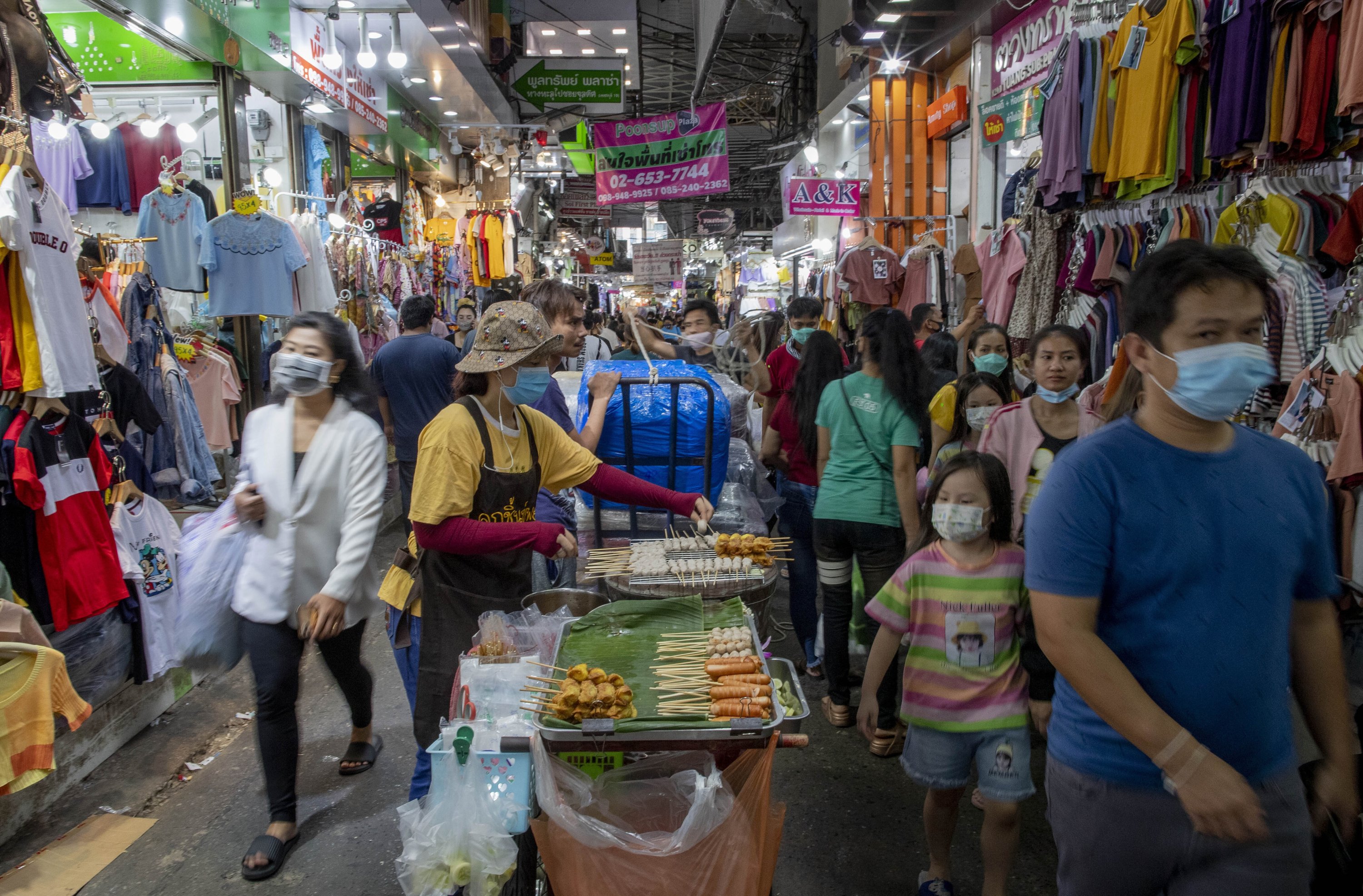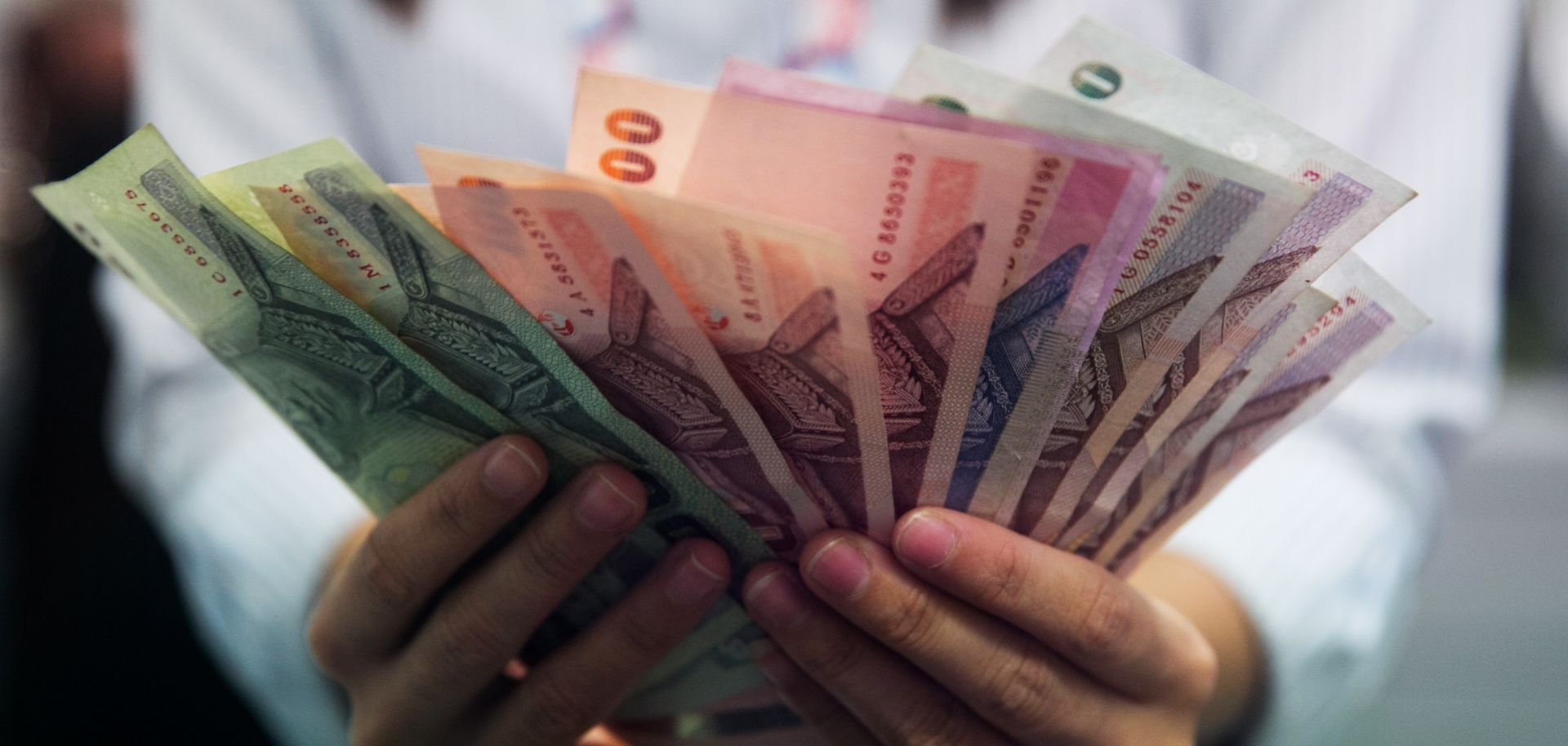Thai Q2 GDP Grows Below Forecast at 1.8%, Outlook Trimmed for the Year

Thai Q2 GDP Grows Below Forecast at 1.8%, Outlook Trimmed for the Year
Due to decreased exports, the government lowered its projected gross domestic product growth for 2023 from 2.7% to 3.7% to 2.5% to 3.0%.
According to figures released on Monday, Thailand’s economy increased less slowly than anticipated in the second quarter, with solid tourism counterbalancing weaker exports in the face of a slowdown in global demand.
Due to decreased exports, the government lowered its projected gross domestic product growth for 2023 from 2.7% to 3.7% to 2.5% to 3.0%.
The National Economic and Social Development Council (NESDC) said that the second-largest economy in Southeast Asia expanded by 1.8% between April and June of last year, less than the 3.1% increase predicted by experts in a Reuters survey.
In the first quarter, the gross domestic product (GDP) increased by 2.7% yearly.
In contrast to the forecasted 1.2% increase, GDP increased by a seasonally adjusted 0.2% in the June quarter.
The first quarter’s GDP was downgraded from an earlier 1.9% growth to 1.7%.
Thailand’s economy has been buoyed by its crucial tourist industry and rising domestic spending, while poor global demand restrains exports.
The organisation kept its 28 million international visitor arrivals prediction for this year. In contrast to its prior forecast of a 1.6% decline, it predicted that exports would fall 1.8% in 2023.

Since October 2022, exports, a significant factor in growth, have decreased due to weak global demand, mainly due to a slowdown in China, Thailand’s leading trade partner.
In an underwhelming performance, Thailand’s economy recorded a 1.8% growth in its Gross Domestic Product (GDP) for the second quarter of 2023, missing analysts’ forecasts. Economic experts had projected a more optimistic growth of around 2.5%, citing increased consumer spending and a rebound in tourism.
This shortfall has led to a revision of the country’s economic outlook for the year, amplifying concerns about the overall health of the Thai economy.
Tourism is a critical pillar of Thailand’s economy, but the sector has been adversely affected by the lingering impacts of the COVID-19 pandemic. Although the country has embarked on a robust vaccination program, hesitancy among potential visitors still exists, hampering the rebound in the sector.
Thailand is a significant exporter of goods like electronics and automotive parts. However, the global semiconductor shortage and increased competition have led to a modest performance in this sector. This slowdown impacted Thailand’s export numbers and, consequently, its GDP.
Even though domestic consumption was expected to pick up with the easing of COVID-19 restrictions, actual spending has been subdued. High unemployment and a less-than-robust stimulus package have contributed to low consumer confidence.

Thailand’s ongoing political situation has deterred foreign investment and caused domestic businesses to hold back on capital expenditure, affecting overall economic activity.
Given the weaker-than-expected performance in Q2, financial agencies have trimmed their forecasts for the Thai economy for the entire year. The initial prediction of 3.5-4.0% growth is now being revised to 2.5-3.0%.
The Bank of Thailand might reconsider its monetary policy. Interest rate cuts to stimulate the economy could be on the table in the upcoming meetings.
The Thai government might be compelled to introduce a more aggressive fiscal policy to boost the economy. This could include stimulus packages focused on employment generation and support for the affected sectors.

With external factors proving unpredictable, a shift towards boosting domestic industries may provide some relief. The focus could be agriculture, technology, and small and medium enterprises (SMEs).
Measures are urgently needed to boost consumer confidence through temporary tax cuts or direct financial support to households.
Accelerating the vaccination program and adopting stringent public health measures could speed up the recovery of the tourism sector, thereby impacting the GDP positively.

Thailand’s Q2 GDP growth of 1.8% serves as a wake-up call for policymakers to address the issues plaguing the economy.
While it’s a complex interplay of international and domestic factors, targeted fiscal and monetary measures could significantly rejuvenate economic growth.
However, time is of the essence, and the sooner these measures are implemented, the quicker Thailand can get back on the path of sustainable economic growth.





